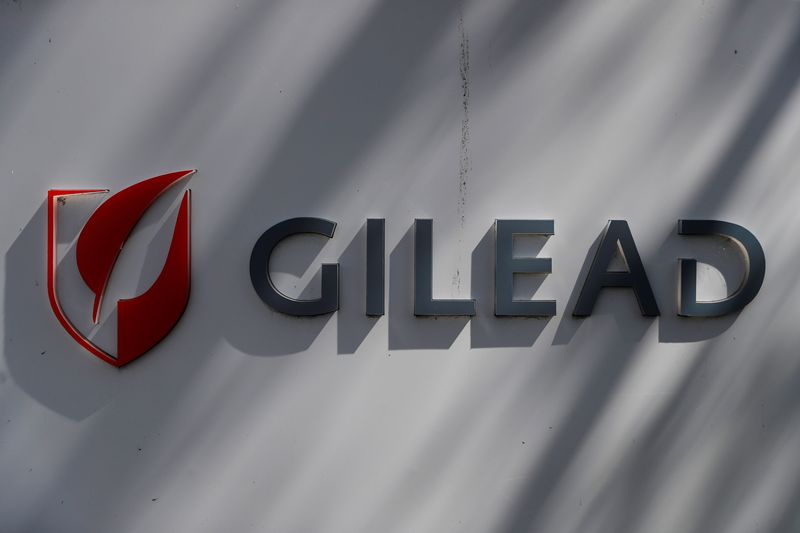By Deena Beasley
(Reuters) -Gilead Sciences on Tuesday said fourth-quarter revenue dipped 4% on lower sales of HIV drugs and its infused COVID-19 treatment Veklury, and the company forecast weaker-than-expected 2024 sales.
For full-year 2024, Gilead (NASDAQ:GILD) said it expects adjusted earnings of $6.85 to $7.25 per share on product sales of $27.1 billion to $27.5 billion. Analysts have projected 2024 earnings of $7.24 per share on revenue of $27.7 billion.
Shares fell nearly 3% in after market trading.
Gilead also said its experimental oral COVID antiviral drug, obeldesivir, did not meet its primary goal in a large clinical trial of non-hospitalized patients.
"The average time to symptoms alleviation is now less than a week in people who are getting the placebo," Gilead's Chief Medical Officer Merdad Parsey said, adding that vaccination rates and increasing immunity to the virus have shortened the overall duration and severity of COVID symptoms.
The company said it would "continue to explore opportunities for obeldesivir in other viral diseases."
The results follow another clinical failure for Gilead. Late last month, its drug Trodelvy failed to significantly improve survival for previously treated patients with a type of lung cancer.
Jefferies analyst Michael Yee said in a research note that investors have recently had fairly negative sentiment about Gilead given its recent difficulties in clinical trials.
"This probably won't help turn it around," Yee said.
Gilead's fourth-quarter revenue totaled $7.1 billion, in line with analysts' estimates, according to LSEG data.
The California-based drugmaker's adjusted profit rose 3% due to lower expenses. Adjusted profit per share rose to $1.72 from $1.67 a year earlier, just shy of analyst expectations of $1.73 per share.
Net earnings per share decreased to $1.14 a share from $1.30 a year earlier.
HIV product sales for the quarter fell 2% to $4.7 billion due to a increase in sales to government-run programs that receive price discounts.

Quarterly sales of HIV drug Biktarvy rose 7% to $3.1 billion, which was slightly below analysts' estimates of $3.2 billion. Veklury sales fell 28% to $720 million, but still came in above Wall Street expectations of $519 million.
Oncology sales rose 24% to $765 million.